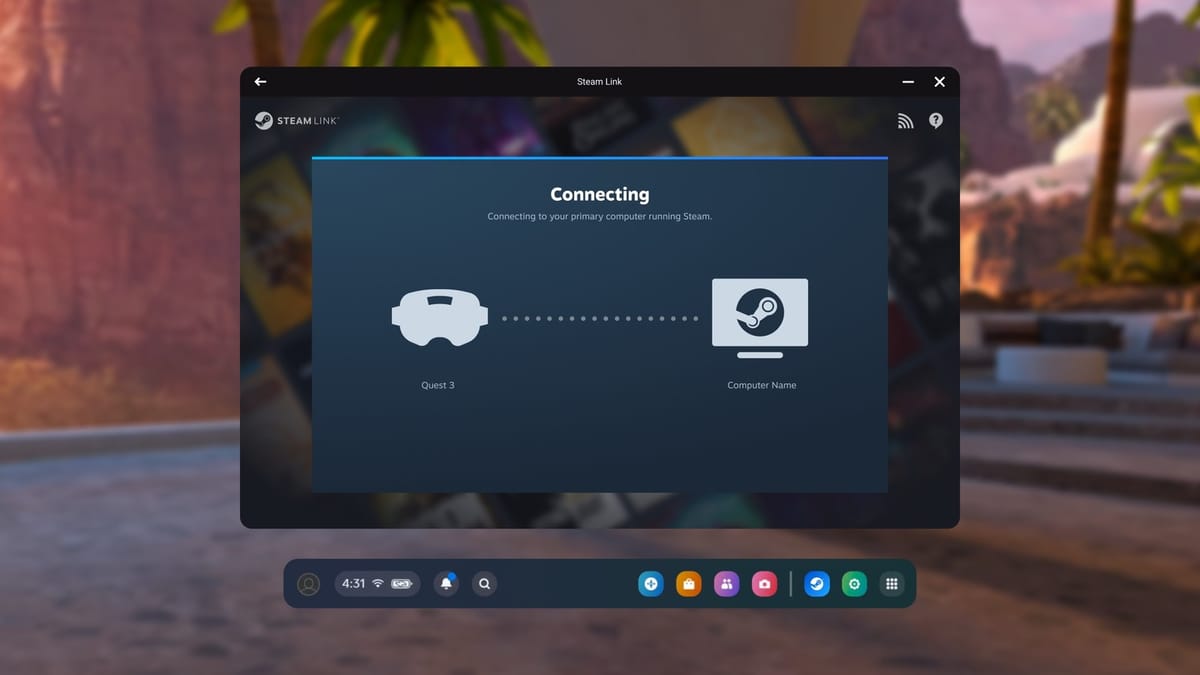This week’s SteamVR Beta brings Advanced Supersample Filtering back to Quest, and it supports the Steam Link app.
Advanced Supersample Filtering has been an option in SteamVR since 2017, but Valve says it was “accidentally disabled” for Meta headsets a few years ago as “a side-effect of another change”. The latest SteamVR Beta update brings it back for Steam Link and Meta’s Quest Link. The setting doesn’t affect Virtual Desktop.
Supersampling refers to rendering at a higher resolution than the headset’s display panels to produce a sharper and perceptually higher detail image with less aliasing. Once rendered, the higher resolution image needs to be downsampled to be sent to the headset at its native resolution. SteamVR’s Advanced Supersample Filtering option is a newer method of doing this that produces less aliasing at the cost of a slightly softer image.
To notice the effect of Advanced Supersample Filtering you’ll need to be using a very high resolution value in the SteamVR Video settings, so it will be most useful for gamers with ultra high-end graphics cards that aren’t using the ‘Auto’ setting.

The update also adds 10-bit color depth video encoding for AMD graphics cards that support this, which should result in significantly reduced color banding and thus superior image quality, especially noticeable in any situations with distinct color gradients, such as fog or darkness. Valve warns that Steam Link’s AMD support in general is still considered experimental though.
Here’s the full changelog for Steam Link in this week’s SteamVR Beta update:
• Enable 10-bit video encoding on AMD graphics cards with this capability.
• Enable “Advanced Supersample Filtering”. This improves video quality when using high supersampling rates. For users seeing poor video quality when not using “auto” settings, this will be a significant improvement.
• Debug UI improvements.
• Fixed an issue that made some networking lag worse than it should be by reducing the impact of stream resets in non-optimal wireless configurations.
• Allow connection to proceed even in network configurations without QoS support.






